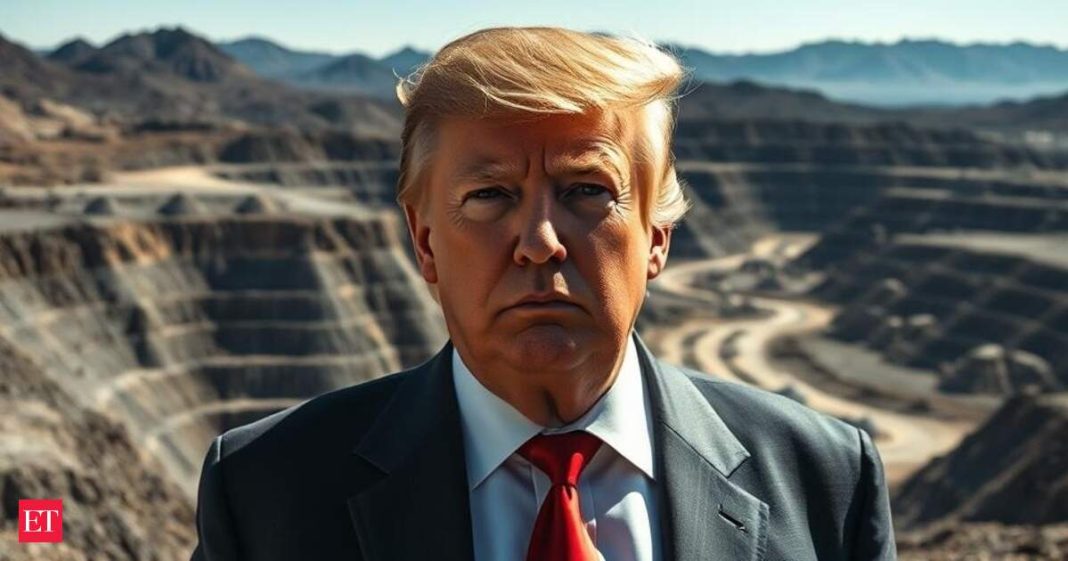Key Takeaways
- US and Australia sign $8.5 billion critical minerals deal to counter China’s supply dominance
- Both nations commit $1 billion for joint mineral processing projects within six months
- AUKUS submarine agreement discussions advance with “full steam ahead” approach
- Australia contributes $2 billion to boost US submarine production capacity
President Donald Trump and Australian Prime Minister Anthony Albanese have signed a landmark critical minerals agreement worth $8.5 billion, marking a strategic move to secure supply chains amid China’s tightening control over global resources. The White House meeting also advanced discussions on the massive AUKUS submarine deal, with both leaders expressing strong commitment to moving forward rapidly.
Critical Minerals Partnership Details
The newly signed agreement focuses on ensuring steady supply of rare earths and critical minerals, materials essential for electric vehicles, military equipment, and advanced technology. Prime Minister Albanese revealed the deal represents an “$8.5 billion pipeline that we have ready to go,” while President Trump noted negotiations spanned four to five months.
Both countries will contribute $1 billion over the next six months for joint mineral processing projects, though complete agreement terms remain undisclosed. The partnership addresses growing concerns about China’s dominance in rare earth production, with US Geological Survey data confirming China holds the world’s largest reserves.
AUKUS Submarine Deal Progress
The leaders discussed the A$368 billion ($239.46 billion) AUKUS agreement originally reached under President Joe Biden in 2023. The pact involves Australia purchasing US nuclear-powered submarines by 2032, followed by joint development of a new submarine class with Britain.
Navy Secretary John Phelan confirmed both nations are working to “improve the original AUKUS framework and clarify some of the ambiguity” in the prior agreement. President Trump dismissed concerns, stating: “There shouldn’t be any more clarifications, because we’re just going now full steam ahead, building.”
“There shouldn’t be any more clarifications, because we’re just, we’re just going now full steam ahead, building,” Trump said.
Strengthening Defense Cooperation
Australian officials emphasized their financial commitment to AUKUS, including a $2 billion contribution this year to enhance production at US submarine shipyards. From 2027, Australia will maintain US Virginia-class submarines at its Indian Ocean naval base.
The ten-month delay in formal meetings since Trump took office had raised concerns in Australia, particularly as Pentagon officials urged increased defense spending. The leaders previously met briefly during last month’s UN General Assembly in New York.
Broader Mineral Security Efforts
Australia plans to offer shares in its strategic critical minerals reserve to allies including Britain, as Western nations accelerate efforts to reduce dependence on Chinese supplies. Recent expansion of Beijing’s rare earth export controls has drawn condemnation from US officials, who warn of global supply chain threats.
During April trade negotiations, Australia proposed preferential access to its strategic reserve, leveraging its resource-rich status to extract and process rare earths independently.
Balancing Economic Relationships
While strengthening US-Australia ties, Canberra maintains crucial economic relations with China, its largest trading partner. Iron ore and coal exports continue supporting Australia’s national budget, despite Beijing’s $20 billion boycott of Australian agricultural and coal products from 2020-2023.
The United States enjoys a significant trade surplus with Australia, which faces among the lowest US tariff rates globally.




